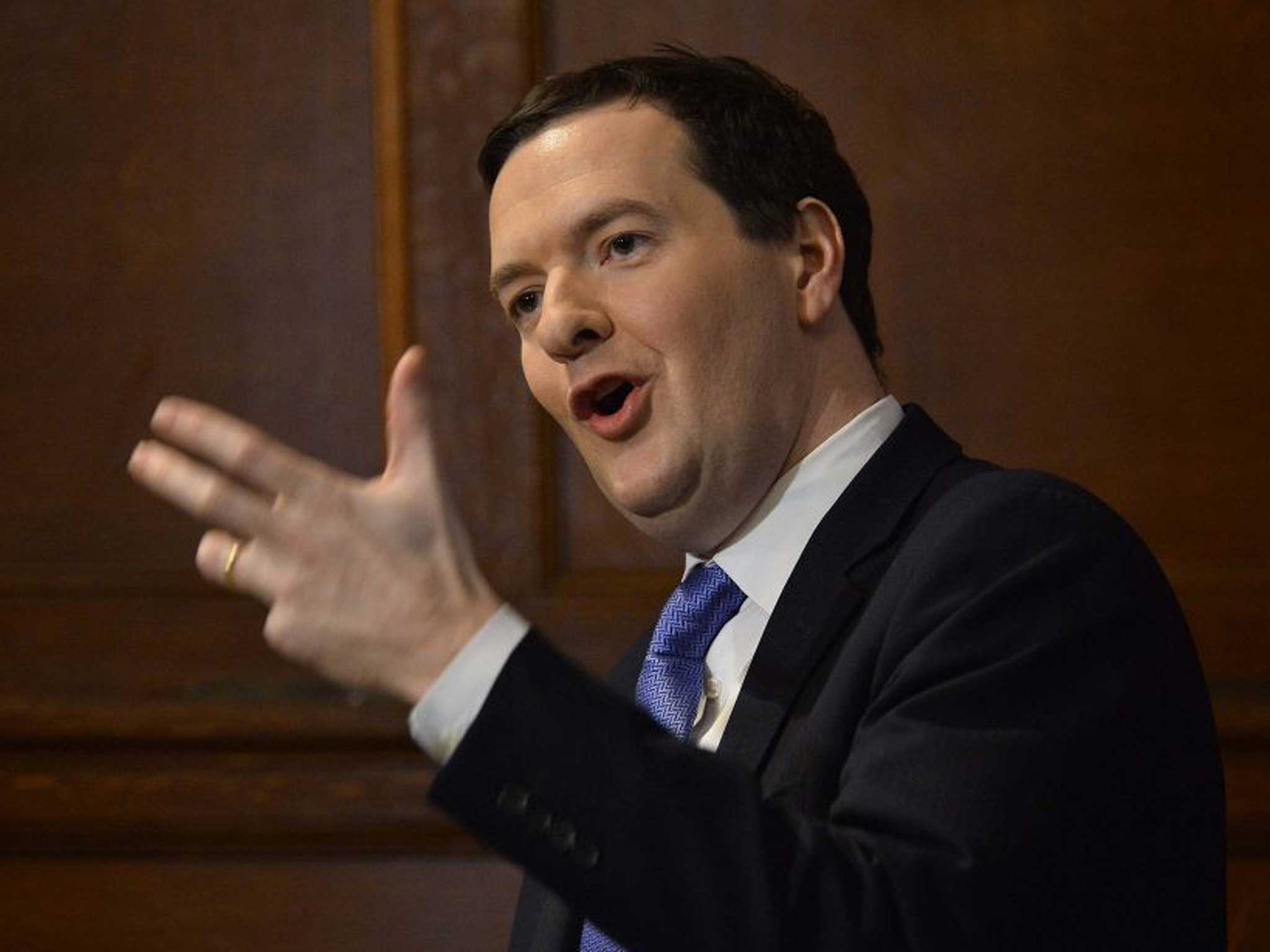Budget 2014: George Osborne reduces taxes on business investment
Businesses allowed to invest up to £500,000 tax free

Your support helps us to tell the story
From reproductive rights to climate change to Big Tech, The Independent is on the ground when the story is developing. Whether it's investigating the financials of Elon Musk's pro-Trump PAC or producing our latest documentary, 'The A Word', which shines a light on the American women fighting for reproductive rights, we know how important it is to parse out the facts from the messaging.
At such a critical moment in US history, we need reporters on the ground. Your donation allows us to keep sending journalists to speak to both sides of the story.
The Independent is trusted by Americans across the entire political spectrum. And unlike many other quality news outlets, we choose not to lock Americans out of our reporting and analysis with paywalls. We believe quality journalism should be available to everyone, paid for by those who can afford it.
Your support makes all the difference.The Chancellor made a step to improve Britain’s low productivity levels by reducing the taxes on business investment.
Businesses will be able to invest up to £500,000 tax free until at least 2015 as the Chancellor bowed to pressure from the business lobby.
The annual investment allowance was hiked to £250,000 back in 2012 in a bid to tackle chronic under-investment by UK firms.
Aidan Sutton, tax director at PWC said: “Finally, this is a massive boost for manufacturer-exporters who have struggled so badly through the recession.”
Osborne said he was hearing the call of the majority of business groups by extending it but wanted to do “do more” by doubling the sum available.
He said the upfront credit was designed to encourage firms to prioritise “investment in the future” and that 99.8 per cent would pay no upfront tax when they use funds for investment as a result.
Under-investment by firms is seen as a chronic weakness of the UK economy. Last year The Economist magazine produced a table showing that the UK ranked below Mali, Paraguay and Guatemala.
The attempt to address this through the allowance is set to cost the exchequer £2bn and comes alongside a package of support for businesses.
Business rate discounts and enhanced capital allowance will also be extended in enterprise zones for another three years, the Chancellor said.
Other measures already announced include brining corporation tax down to 20 per cent next year.
Firms in premises with rateable values of up to £50,000 will get discounts worth £1,000 off their bills for the next two years while businesses moving into vacant high street properties will benefit from a 50 per cent discount.
Business rates in some areas exceed rentable values. The business lobby has called for the system of calculation to be torn up.
Join our commenting forum
Join thought-provoking conversations, follow other Independent readers and see their replies
Comments